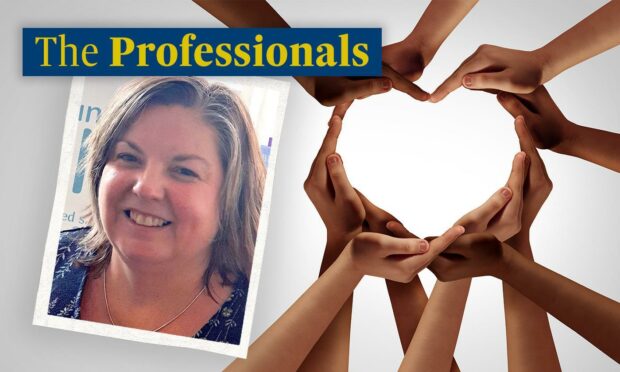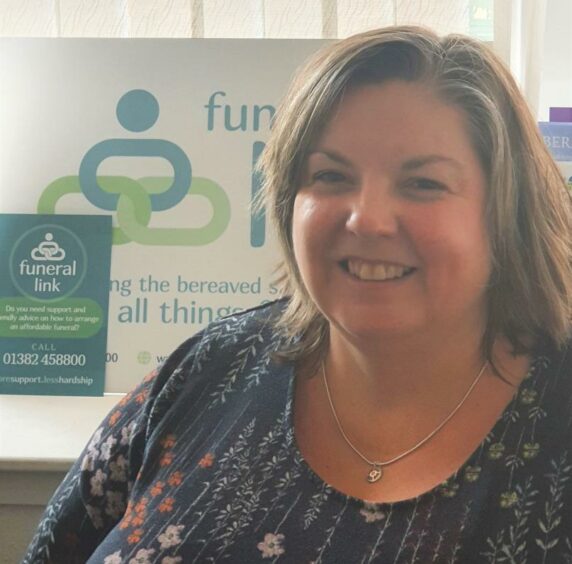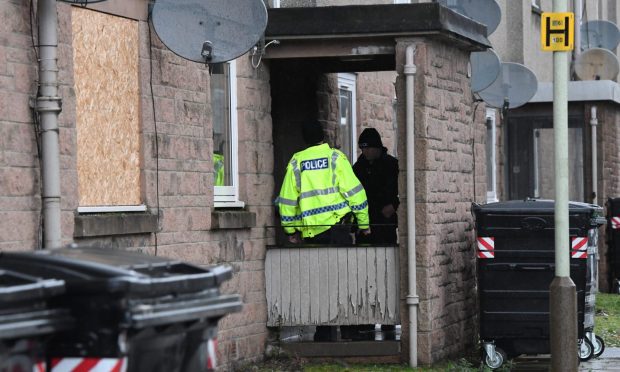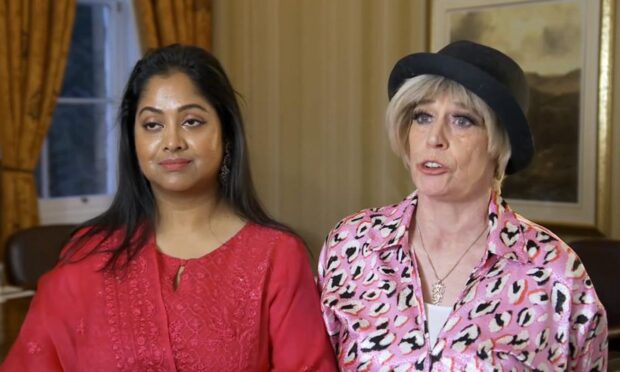People want to do the right thing when a loved one is dying or grieving. But often they feel awkward offering help, or worry about making things worse.
#SaySomethingDundee is encouraging locals to open up and talk during this Demystifying Death Week.
The partnership between Funeral Link, Dundee Volunteer and Voluntary Action, Dundee University and Marie Curie, offers practical advice and support on death, dying and bereavement.
Here, the Dundee professionals share five things you can do to start conversations and help loved ones get their affairs in order.

Linda Sterry leads local charity Funeral Link and is part of the #SaySomethingDundee team.
She explains: “We regularly come into contact with people who wish they’d been able to have had conversations with loved ones about their funeral wishes, for example.
“This would have helped them make the really challenging decisions they’ve been left with afterwards.
What is your advice for starting ‘that’ conversation?
“Don’t overthink it! Start with saying how sorry you are for their loss (if it’s a bereavement).
“Ask them how they are – and really want to know the answer! Never start the conversation with ‘At least…’.”

Helen MacGregor works for Marie Curie and is on the #SaySomethingDundee group.
She says: “People can have questions about serious illness or death. But often they don’t know who to ask.
“Making plans when you’re healthy means there is less to think about when you’re ill. Often people put off making plans until it is too late.
Films
“The first step to planning ahead is finding out what needs to be done and why.
“There’s a range of SaySomethingDundee films which cover subjects such as making decisions about future care; body donation (which is possible here in Dundee); power of attorney (assigning someone to make decisions for you) and care home fees.”
What are 5 practical things people can do to plan ahead?
Linda advises:
1. Start these conversations with those you love, and do it whilst you’re well and able to express your opinions – please don’t wait for something to happen!
2. Include your wishes for end-of-life care, share what matters to you.
3. Ensure you have power of attorney in place. This lets you assign someone to make decisions for you if you’re unable to do so, and covers financial and health/welfare decisions.
4. Write a will to decide what happens to your money, property and possessions when you die as well as who you’d like to look after any children.
5. Tell those you love the most what your wishes are for your own funeral – this will help ensure they’re not second guessing if the worst were to happen to you.
Where can people access resources and is there a cost?
Starting conversations will only cost a wee bit of courage!
Power of attorney and wills can be accessed through any solicitor.
Costs vary but roughly speaking you’d expect to pay around £300-£350 plus a £81 standard registration fee for a power of attorney and roughly £250-300 for a single will.
There are some support organisations and who offer a will free of charge but you may have to wait a bit longer to access this.
- For more information on demystifying death see Good Life, Good Death, Good Grief and Marie Curie’s Talkabout online magazine.












Conversation